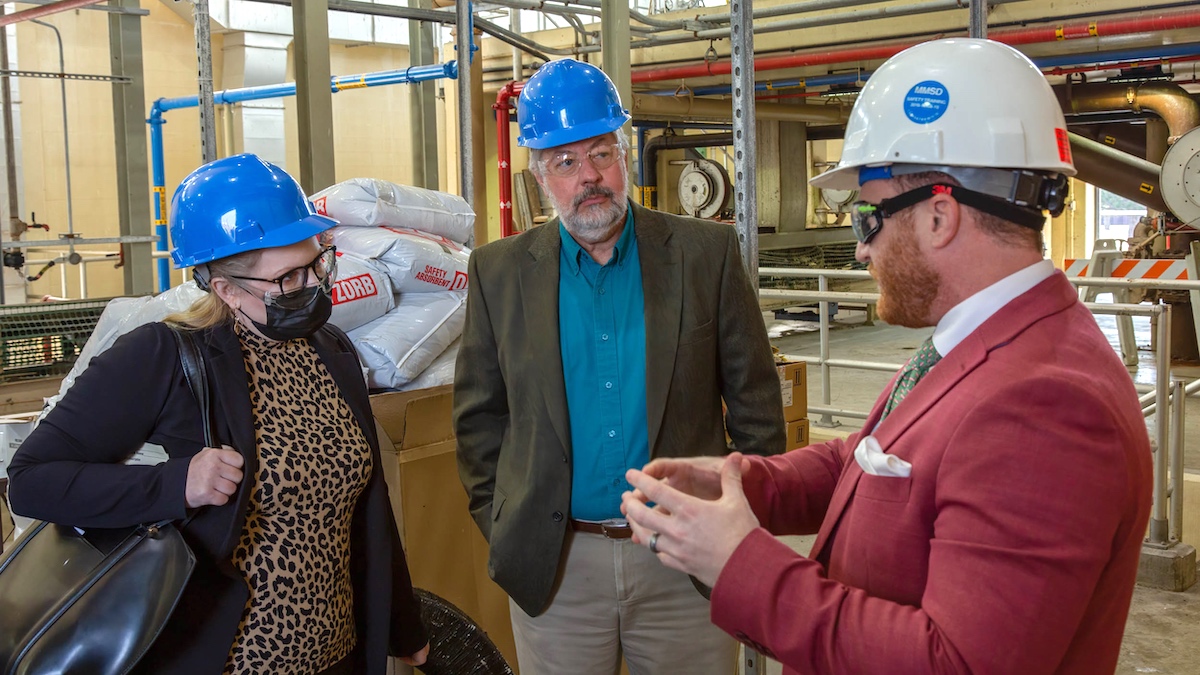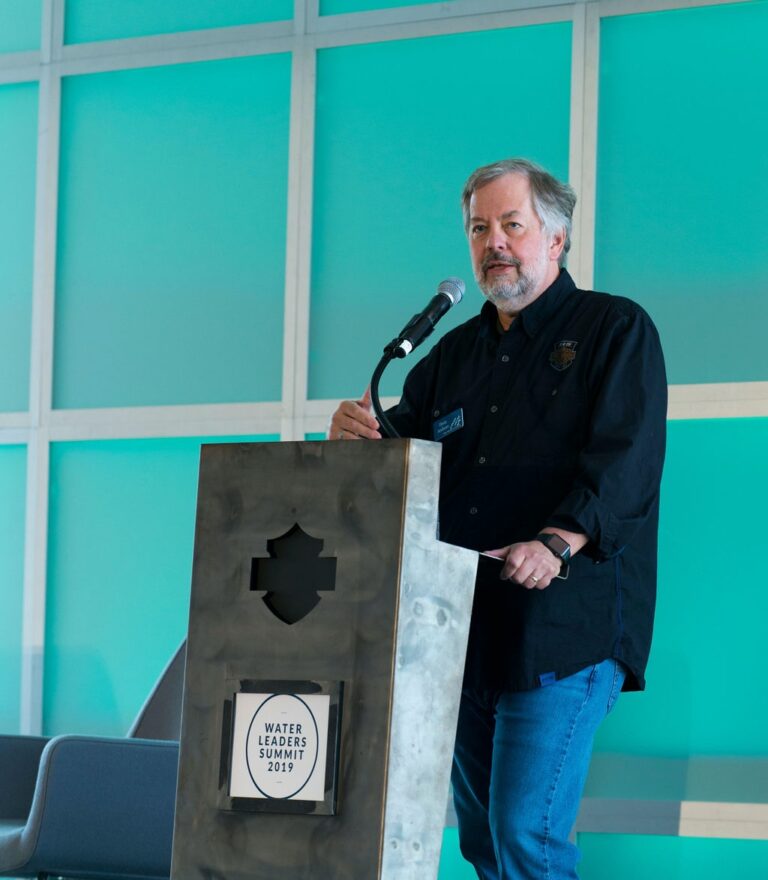Surprise: A city so famous for its beer is also the fresh water technology capital of the United States and hosts one of the most mature water technology hubs in the world.
That would be Milwaukee and The Water Councila non-profit organization committed to solving critical global water challenges by advancing freshwater innovation and advancing water stewardship.
It is an unexpected organization with an unexpected leader who faces a national crisis.
The art of career
Dean Amhaus, the organization's president and CEO, always planned to go into show business. After growing up in Cudahy, Wisconsin, he went on to college intending to run a theater business and spent the beginning of his career in DC, where he handled government affairs in arts and cultural policy. In 1990, Amhaus assumed leadership in the Wisconsin Arts Councila role that facilitated positive relationships with state and federal government and arts organizations.

Dean Amhaus. (courtesy photo)
Amhaus eventually became its president Spirit of Milwaukee, a nonprofit that educates the public about the city. In an effort to expand the city's brand, Spirit of Milwaukee identified key industries in the city. Among the most predictable industries such as advanced manufacturing and financial services was a branch that had never been fully realized: water technology.
“No one had heard of it, no one had discovered it,” Amhaus said Technically.ly. “It was completely new.”
While with the Spirit of Milwaukee, Amhaus became increasingly involved with the new concept of water technology. He and a few other executives around Milwaukee began working together to develop the idea and bring it to fruition. Eventually, he made a permanent transition.
“This job has a lot of water puns, but I literally fell into the water for it,” he said of his lack of technical expertise. “I just got more and more involved, and at some point, you start raising some money and you're like, 'Okay, what are we going to do with this?' Someone has to run it.”
Despite his lack of technical expertise, Amhaus' experience in previous roles led to his success. He has had a career practicing in government relations, board management, corporate leadership and fundraising, all of which are integral to his work at The Water Council. Headquartered on the aptly named Freshwater Way in Milwaukee, the company of approximately 150 employees is led by a leadership team of 10, who bring their own expertise to the table, including expertise in engineering, water management and business management.
Milwaukee as a water technology hub
Milwaukee might seem like a surprising choice for a freshwater innovation hub. There are other major cities along the shores of the Great Lakes that could do the job, and the Midwest doesn't have the same water challenges as the western states: California faces potential mandatory water restrictions in the midst of their ongoing drought and the water we drink contains unknown traces of PFAS chemicalsmaking tap water questionable.
However, Amhaus explained that those other cities don't have Milwaukee's brewing history. Breweries came to Wisconsin because of its access to water, river, grain and farms, and in order to be successful, they needed companies to help them process the water that would be used in their beer.
Guided by this history, since its inception in 2009, the Water Council has grown into one of the only organizations of its kind in the world. Its main goal is to connect innovators, big and small, with the businesses and institutions that would make them happen — a water technology nerve center on a global scale.
For example, in early 2021, a South Korean company Water tomorrow approached the Water Board to pilot the utility's wastewater treatment technology. According to Amhaus, this technology takes the hour-long wastewater treatment process and reduces it to just six minutes in a third of the space it normally takes. The Water Board introduced this technology to Milwaukee Metropolitan Sewerage District which accepted the offer and is now in the second phase of piloting the technology.

Dean Amhaus at the South Shore Water Remediation Facility in Oak Creek. The Department of Workforce Development event which included a demonstration by Tomorrow Water, a member of the Water Board piloting its technology at the facility. (Photo courtesy of Wisconsin Department of Workforce Development)
Management and the next generation
Despite the innovation that has taken place throughout its history, Amhaus knows the region still has work to do to extend the benefits of the industry to all residents.
“Milwaukee has seen significant advances since I was young,” he said. “But the community still needs to make significant strides in breaking down the walls that separate our diverse populations.”
The Water Board is doing its part through its programs provides students of Milwaukee and the surrounding area, partnering with academic institutions in southeastern Wisconsin to educate the water leaders of tomorrow. These academic institutions include technical schools, four-year universities and colleges, as well as some local high schools.
The Water Council also believes that innovation in water includes need water management, and operates a program that helps companies improve their water practices. From dairies to data centers, all types of businesses are responsible for how they affect water and how to implement reliable improvement strategies.

Dean Amhaus at the annual conference for the Water Environment Federation. (courtesy photo)
Amhaus sees a need for these technologies as the country's water crisis worsens. As he puts it, water is the 'canary in the coal mine' when it comes to climate change: 'It's the first indicator and you can see that from rivers drying up you can see that from droughts, you can see it from floods . It should be the marker out there.”
Amhaus and the Water Council ultimately have one goal in mind as they move forward with the project: to leave the world better off than when they came into it. Well done on that.
Subscribe to This Week in Milwaukee Rising:
Knowledge is power!
Join for free today and stay up to date with the news and tips you need to grow your career and connect with our vibrant tech community.
Technical means

